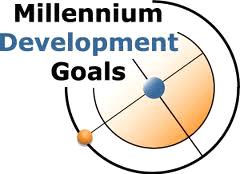By Eduardo Pisani and Aron Cramer*
This week at the United Nations in New York, the Jordanian government will gather with other governments from around the world to review for the last time the Millennium Development Goals (MDGs)—goals set by UN member states to accelerate development in the poorest countries. With less than 800 days before the deadline for the MDGs it’s time to take stock of the milestones achieved and think about what needs to change in order to meet the new goals we will set for post-2015.
Jordan has shown a clear commitment to work towards the achievement of the MDGs. Not only because Queen Rania Al Abdullah is one of the members of the UN high level panel on the post-2015 agenda but also because Jordan is on track to improving maternal health and combating (HIV/ AIDS), Malaria and Other Diseases in line with the MDGs. Going forward Jordan has highlighted that the involvement of the private sector, for example in providing reproductive health and family planning counseling and services does need to be fostered in order to continue progress already made. What we are saying is that these cross-sector collaborations are already happening, but in learning from the past setting what is now needed are viable goals and planning in advance for optimal cross-sector collaborations is necessary.
With the health-related MDGs, much has been accomplished, including a decrease in maternal and young child mortality, declining HIV infections, and an increased proportion of births attended by skilled health workers. However, it’s clear that not all the MDGs will be met, particularly those targeting children’s health in the poorest and most rural areas of the world. When it comes to immunizations, for example, vaccines fail to reach nearly 20 million children per year, most of whom are living in Africa.
Closing this gap, and achieving the other global health goals, requires new thinking and fresh commitments from across all sectors—including industry, governments, multilaterals, NGOs, and other organizations—to cross-sector partnerships that drive systemwide change.
Since the MDGs’ launch in 2000, the number of cross-sector partnerships aimed at advancing health-related goals and involving the pharmaceutical industry has increased dramatically. By bringing together a broad set of stakeholders from the private sector and beyond, pharmaceutical companies initiated and contributed to partnerships tackling many of the barriers that have blocked progress on health goals.
Last year, BSR analyzed more than 200 global health partnerships, and the one common denominator for successful outcomes was a cross-sector approach—with strong commitments from all parties. These types of partnerships addressed challenges such as disease awareness and diagnosis, funding deficits, healthcare worker knowledge and training, supply chain issues, and gaps in innovation and distribution.
Until recently, most of these cross-sector partnerships aligned with the health-related MDGs, which focus on neglected tropical diseases (NTDs), malaria, HIV/AIDs, and other infectious diseases. While those initiatives remain critical, we must do more—with a specific focus on noncommunicable diseases (NCDs) like diabetes, cancer, and respiratory and cardiovascular diseases. Today, 80 percent of deaths due to NCDs occur in low- and middle-income countries, and the post-2015 goals will need to rally support to meet those challenges.
The original MDGs were conceived without a clear roadmap for how the private sector could contribute. More than 10 years later, it’s clear from the examples above and hundreds of others that industry plays a critical role in the cross-sector partnerships that are essential to achieving global health goals. But we can drive more progress if we plan for these collaborations up front. Avenues for collaboration are many and have been enshrined in the Guiding Principles on Access to Healthcare—a call to action and framework for driving progress that was shaped by BSR and signed by 13 pharmaceutical CEOs earlier this year.
As we prepare once again to answer the UN’s call for “the engagement of responsible business and civil society” to achieve sustainable and inclusive development, we ask decision-makers and other potential contributors—from all sectors—to engage in multistakeholder dialogues together with the pharmaceutical industry. Together, we can set viable goals and plan in advance for the cross-sector partnerships that will drive their achievement.
* Eduardo Pisani, Director General, International Federation of Pharmaceutical Manufacturers and Associations (IFPMA)
Aron Cramer, President and CEO, Business Social Responsibility (BSR). The authors contributed this article to Ammon News English.








 comment replay
comment replay 